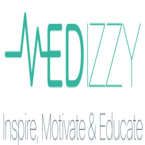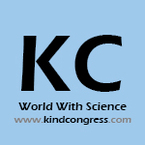Sessions / Tracks
In a world where health threats know no borders, robust global surveillance systems are essential for early detection and rapid response. This session delves into the evolving frameworks of global epidemiology, focusing on how integrated surveillance networks help track emerging and re-emerging diseases. It will explore collaborative systems such as WHO’s GOARN and digital surveillance tools that enhance real-time disease tracking. Experts will share insights on overcoming challenges in data collection, quality, and reporting, especially in under-resourced regions. Case studies from recent outbreaks like COVID-19 will highlight best practices and areas for improvement. The session will also address ethical considerations in cross-border data sharing and the role of community-based and syndromic surveillance in strengthening local and global health security.
2. Non-Communicable Diseases: Prevention and Control
Non-communicable diseases (NCDs) such as cardiovascular conditions, cancer, diabetes, and chronic respiratory diseases account for the majority of global mortality. This session examines the growing burden of NCDs, particularly in low- and middle-income countries, and explores effective prevention strategies grounded in epidemiological evidence. Participants will discuss the role of behavioral risk factors tobacco use, diet, physical inactivity, and alcohol consumption and examine how public policy, urban planning, and health literacy can curb NCD incidence. Emphasis will be placed on surveillance data, screening programs, and community interventions that improve disease outcomes and promote sustainable health systems.
3. Infectious Diseases and Pandemic Preparedness
This session focuses on the ever-present threat of infectious diseases and the importance of being prepared for the next pandemic. Lessons learned from COVID-19, Ebola, and Zika will be discussed, with particular attention to epidemiological modeling, early warning systems, and global coordination. Participants will explore how data-driven surveillance, vaccine equity, and community engagement are central to pandemic preparedness. The session will also cover antimicrobial resistance (AMR), innovations in diagnostics, and how public health infrastructure must adapt to future biological threats.
4. Climate Change and Environmental Health
Climate change is increasingly recognized as a public health emergency. This session will examine how rising temperatures, extreme weather events, and changing ecosystems impact human health. Topics will include the epidemiology of climate-sensitive diseases such as malaria, heat-related illnesses, respiratory conditions, and mental health effects of environmental disasters. Speakers will also explore how vulnerable populations are disproportionately affected and how public health systems can mitigate risks through policy, surveillance, and cross-sector collaboration. Emphasis will be placed on the intersection of environmental justice and health equity.
5. Social Determinants of Health and Health Equity
Health outcomes are deeply influenced by socioeconomic, cultural, and environmental conditions. This session will explore the role of social determinants including income, education, housing, and access to care in shaping public health. Epidemiological methods will be discussed in the context of identifying disparities and designing interventions that promote health equity. Presenters will showcase successful community-based initiatives, health equity metrics, and policy changes that address systemic inequities. The session also encourages dialogue around racial, ethnic, and gender-based disparities in health outcomes and the need for inclusive public health strategies.
6. Maternal and Child Health Epidemiology
Improving the health and survival of mothers and children remains a global priority. This session explores the latest epidemiological trends in maternal and child health, including pre- and postnatal care, nutrition, vaccination coverage, and access to essential services. Experts will discuss the impact of health inequities, social determinants, and conflict on maternal and neonatal outcomes. Innovative surveillance systems, early intervention strategies, and community-based programs that have shown measurable impact will be presented, alongside policies that support reproductive health, safe deliveries, and adolescent health education.
7. Mental Health and Behavioral Epidemiology
Mental health is an integral part of public health, yet it remains under-researched and underfunded globally. This session will examine the burden of mental illness across populations, the epidemiology of depression, anxiety, substance use, and suicide, and how behavioral factors contribute to long-term health outcomes. Emphasis will be placed on stigma reduction, mental health services integration, and population-level data collection. Attendees will explore behavioral surveillance models and community resilience frameworks that offer culturally sensitive, scalable interventions.
8. Genomic Epidemiology and Precision Public Health
This session dives into the expanding field of genomic epidemiology, where the intersection of genetics and public health is reshaping prevention and treatment strategies. Topics include the use of genome sequencing in tracking infectious disease outbreaks, understanding inherited disease patterns, and tailoring public health interventions based on genetic risk. Participants will explore how integrating genomic data with traditional epidemiology enables more precise, population-specific health strategies, while also addressing ethical, legal, and equity challenges in precision health.
9. Health Systems and Policy Research
Strong health systems and evidence-informed policies are foundational to public health success. This session explores how epidemiological research supports health policy-making, from resource allocation to program evaluation. Attendees will examine health system performance metrics, the impact of universal health coverage, and lessons from policy responses during global crises like COVID-19. Real-world case studies will show how policy innovation grounded in data can improve access, efficiency, and equity in healthcare delivery across different national contexts.
10. Nutrition and Public Health
Nutrition is central to preventing both undernutrition and chronic diseases like obesity, diabetes, and cardiovascular conditions. This session will highlight current trends in nutritional epidemiology, including food system analysis, dietary assessment tools, and public health nutrition programs. Speakers will address double burdens of malnutrition in low- and middle-income countries and explore successful policy interventions such as food fortification, school feeding programs, and sugar-sweetened beverage taxes. Emphasis will be placed on the role of cultural practices and socioeconomic status in shaping dietary behaviors.
11. Digital Health and Epidemiological Data Science
Digital transformation is revolutionizing public health. This session explores how mobile technology, artificial intelligence, big data, and digital surveillance tools are reshaping epidemiological methods. Topics include real-time outbreak monitoring, telehealth, health informatics, wearable health tracking, and data visualization techniques. Attendees will gain insights into data privacy, interoperability challenges, and digital literacy requirements. Case studies will demonstrate how digital tools are enhancing health surveillance, behavior tracking, and health system responsiveness across diverse settings.
12. Occupational and Industrial Epidemiology
The workplace plays a significant role in shaping health outcomes, particularly for populations exposed to chemical, physical, or psychosocial hazards. This session focuses on the epidemiology of occupational diseases such as silicosis, asbestos-related cancers, musculoskeletal disorders, and work-related mental health issues. Experts will discuss regulatory frameworks, exposure assessment methods, and workplace intervention strategies. Attendees will explore how improved workplace surveillance and policies can protect vulnerable worker groups, particularly in informal or high-risk industries.
13. Aging Populations and Geriatric Epidemiology
With life expectancy increasing globally, public health systems must adapt to the unique needs of aging populations. This session will explore the epidemiology of aging, including trends in dementia, falls, frailty, and multimorbidity. Participants will examine healthcare access, long-term care infrastructure, and healthy aging strategies. Emphasis will be placed on promoting independence, social inclusion, and early screening programs to support well-being in older adults. Innovative models from different countries will be presented.
14. Migration, Displacement, and Global Health
This session highlights the public health implications of human mobility whether due to conflict, climate change, or economic migration. Topics include the epidemiology of refugee health, infectious disease outbreaks in camps, and barriers to healthcare access for displaced populations. Participants will learn about culturally competent care, mental health services for trauma survivors, and ethical challenges in collecting data among mobile populations. Real-world responses to recent migration crises will be examined to inform more inclusive health policy approaches.
15. Public Health Preparedness and Emergency Response
From pandemics to natural disasters and bioterrorism, public health emergencies demand timely and coordinated responses. This session will explore preparedness frameworks, risk communication strategies, simulation exercises, and emergency operations centers (EOCs). Case studies will highlight lessons learned from global health emergencies, emphasizing community engagement, interdisciplinary collaboration, and rapid data use. Participants will leave with practical insights into strengthening local and national emergency response systems for greater resilience.
Market Analysis
Global Healthcare Market Outlook and Analysis:
In 2020, the global economy experienced a growth rate of 3.0%, with emerging markets expanding at a stronger pace of 4.6%, while developed economies recorded a more modest increase of 2.0%. This economic landscape revealed sharp contrasts in healthcare expenditure per capita across different regions, as highlighted during WCEPH-2025. Countries such as Argentina, Iran, Mexico, and Turkey faced notable market risks, including economic instability and policy uncertainty. In contrast, nations like China and several Latin American countries demonstrated elevated per capita healthcare spending, backed by qualitative healthcare infrastructure and robust market revenues.
For a country to establish a resilient healthcare system and contribute effectively to global economic performance, it must focus on foundational elements such as consistent healthcare policy implementation, political stability, and sustained industrial development. These components are vital for enabling long-term growth in both the healthcare and economic sectors.
The global healthcare expenditure stood at USD $7.724 trillion in 2017, with projections estimating it to reach USD $10.059 trillion by 2022. Regional expenditures include:
North America: USD $4.175 trillion
Western Europe: USD $2.279 trillion
Asia & Australia (WCEPH-2023): USD $2.427 trillion
Latin America: USD $437 billion
Middle East & Africa: USD $279 billion
Transition Economies: USD $239 billion
Epidemiology 2025 – A Strategic Platform in Amsterdam
Amsterdam, a country known for its progressive social infrastructure and rapidly growing economy, provides a dynamic setting for the Epidemiology-2026. Its comprehensive and accessible healthcare system stands as a benchmark for many nations, having made significant progress in a relatively short time.
Participants at the summit will explore advanced epidemiological tools, including mortality statistics, disease incidence tracking, and predictive modeling techniques. These instruments are critical in evaluating disease burdens and crafting proactive public health responses.
Notably, the World Health Organization ranked Singapore 6th globally for its healthcare system efficiency in 2000, emphasizing the importance of structured data analysis in national health planning.
Market Intelligence in Healthcare: The Role of DelveInsight
DelveInsight emerges as a pivotal player in healthcare market intelligence, serving as a strategic knowledge partner to pharmaceutical and biotechnology companies worldwide. The firm specializes in competitive intelligence, helping businesses identify growth opportunities, map therapeutic landscapes, and fine-tune their product strategies.
With a repository of over 3,000 detailed reports, DelveInsight covers diverse domains such as:
-
Indication Intelligence
-
Mechanism of Action (MOA) Insights
-
Pipeline and Drug Development Insights
-
Active Pharmaceutical Ingredient (API) Analytics
Their actionable data empowers clients to discover untapped markets, forecast trends, and position themselves effectively in a highly competitive environment.











